|
|
Post by Admin on Apr 22, 2015 20:26:29 GMT
After the career she's had, Ashley Wagner probably could have benefited from a hospital stay and a well-chaperoned mental breakdown. But that's not her style. So instead, the figure skater opted for a tattoo of the Olympic rings strategically placed on her ribcage – where she'd been told the needle would really smart. "You get to the Olympics and it's been such a painful road," she explains. "So there was no place more appropriate than right there on my left side."  She's not exaggerating. Five years ago at the U.S. Figure Skating Championships in Spokane, Washington, Wagner missed the Olympic team by one place, earning her the nickname "The Almost Girl". As America's first alternate to the Vancouver Games, she was required to continue training with the slim chance that she would benefit from another skater's misfortune. But her U.S. teammates didn't break any bones, so she watched the two athletes who'd narrowly outskated her for six-and-a-half minutes in Spokane go to the one competition she'd been dreaming about for most of her life. 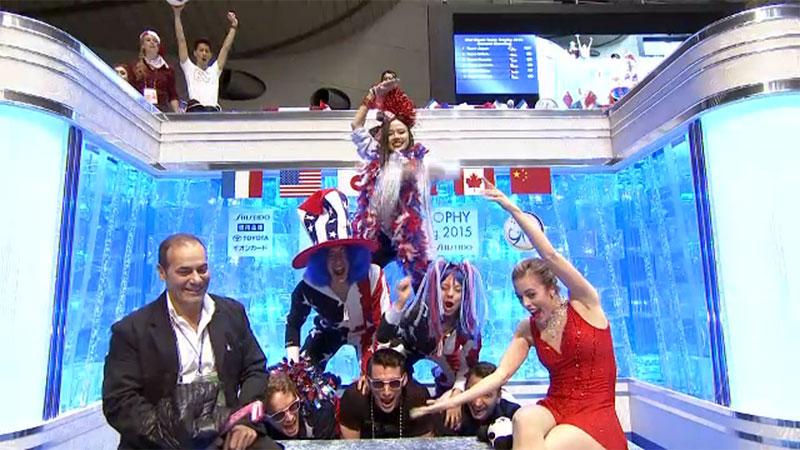 The next year, Wagner became tense enough that a muscle in her neck pushed a vertebrae out of alignment. She fell from third in the U.S. rankings to sixth, the lowest she'd ever placed. It was the kind of disappointment that could drive someone insane, so Wagner gave herself an insane ultimatum: She'd win the national title the next year or quit skating forever. "I'm a numbers person; I go by hard facts and that's kind of what my brain processes as success," she says. "It's very much the 'military child' upbringing. I'm extremely competitive, and there's no shame in saying it. It's just who I am. I never want to settle for good. I want to settle for the best. That's my goal. I never really enter a competition just to get second place and be good. I enter a competition because I want to win." 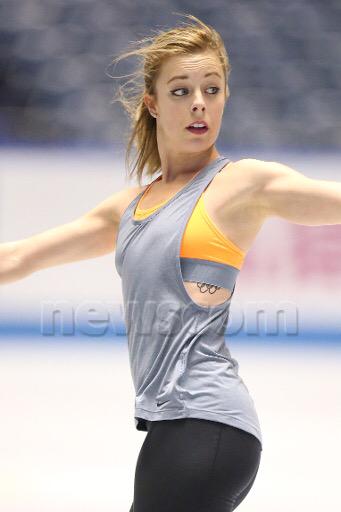 She threw the money she'd been saving for college into a move across the country to train under the legendary John Nicks in California. And at the 2012 U.S. Championships, she didn't quit; she stood atop the podium as the best women's figure skater in America. Wagner repeated as U.S. champ in 2013, and headed into the 2014 competition as a favorite to qualify for her first Olympics. Precedent said the top three competitors would be sent to the Sochi Games, and no one had seriously considered the possibility that she wouldn't make it. And then on January 11, 2014, Wagner spent two out of six triple jumps on her ass. By the end of the night, she was no longer U.S. Champion, placing fourth behind Gracie Gold, Polina Edmunds and Mirai Nagasu. Once more, she was one place away from the Olympic team – or so it seemed. 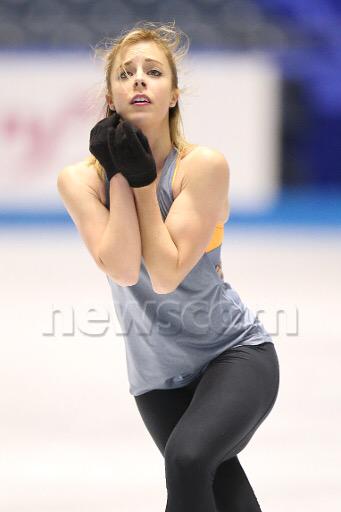 In Sochi, Wagner turned in a seventh-place performance, which is really very good, though not Wagner-metric good or medal-recognition good. Without an American podium placement, the biggest figure skating news story of the Olympics just may have been the #WagnerFace memes which pictured a post-short program Wagner gaping in remonstration at her scores before turning to her coach to mutter, "That's bullshit." There were criticisms, but she wasn't about to apologize: "I don't put on a persona for people," Wagner says. "What you see is what you get, and I wear my heart on my sleeve. And I am a person that says 'bullshit.'" It had been a year of a lot of bullshit. In comparison, the tattoo was a cakewalk. So Wagner did what she always does: she trained obsessively. During the time between Nationals and Worlds, she was certain that physical preparation would yield mental fortitude ("I come from a military upbringing," she says, "so the most sports psychology I ever got was from my dad. He just said, 'Don't be a wimp.'") The mantra had worked well enough that she'd become a three-time U.S. Champion, medalled at three prestigious Grand Prix competitions this season alone and now was the holder of the all-time high in American women's skating. Her goal of ending an eight-year medal drought at the World Championships seemed within reach. 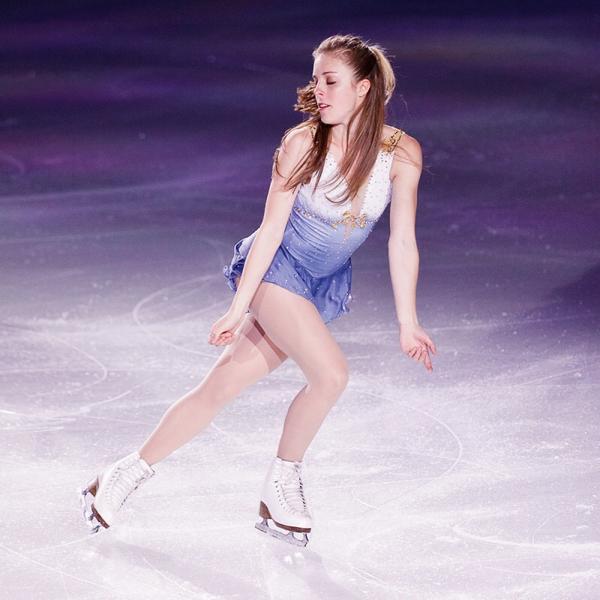 Wagner had made a huge comeback at the U.S. Championships, but the problem with comebacks is they only work if the triumphant underdog keeps winning. And when Wagner arrived in Shanghai, nothing quite seemed right. The ice felt soft, which meant she had to expend much more energy to attain her usual speed. The boots of her skates seemed to have broken down too much, leaving little in the way of ankle support. She taped her boots to compensate for their structural weakness, but this stymied the give required for proper knee bend. "Everything together made me feel like I was working against Mount Everest," she says, recalling how she entered the short program feeling as though she was trying to save something. |
|
|
|
Post by Admin on Aug 4, 2015 19:43:48 GMT
After going platinum blonde last season, US figure skater Ashley Wagner is coming back with a new look, and a new fierce program. Last month, Wagner posted a short video sneak peek of her new short program to "Hip Hip Chin Chin" by Club des Belugas, choreographed by Shae-Lynn Bourne. "A little sneak peek at what I've been up to this week with Shae," wrote Wagner on Instagram. "It needs a lot of work but I'm obsessed. The woman is a goddess."  Wagner is coming into the upcoming figure skating season winning her third US national title, but a disappointing finish at the World championships. "I know in my gut that I am capable of becoming a world champion," said the 24-year-old to Rolling Stone. "I know in my gut that I am capable of being somebody that people remember, and I also know that right now I'm not that person. I'm sure nobody expects much of me beyond what I've done this year, but I know I can be world champion and it starts with me working my butt off this summer so that I can go into the next season and make everybody shut up." |
|
|
|
Post by Admin on Aug 12, 2015 19:59:31 GMT
Skating to music from the film Moulin Rouge, in total command of a program with by far the highest jump difficulty of her career, Wagner seems to have answered all the questions that followed after she slopped her way to a spot on the 2014 Olympic team with a two-fall, desultory free skate last year. She continued to slog along — seventh at the Olympics and 2014 worlds — until a strong free skate at last month's Grand Prix Final. 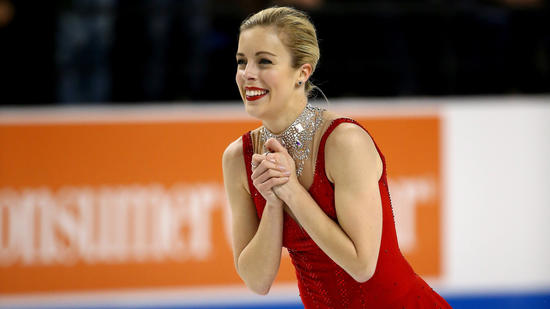 "I felt like people were starting to write me off, and I wasn't giving them any reason to feel I was competitive," Wagner said. At 23 ("I know I'm old"), she has met the challenge of learning new technical tricks to compete with the teenybopper Russians who are dominating the sport. Among her seven successful triple jumps were two triple lutzes, one in a triple-triple combination and the other 20 seconds from the end of the four-minute program. Until Thursday's short program, she never had attempted a triple lutz-triple toe combination. It is the hardest combination any of the world's elite skaters is doing this season. "This is the first competition in a while in which I've had two totally solid performances (short program and free skate), where I said I was going to put out two solid performances and done that," Wagner said. |
|
|
|
Post by Admin on Oct 29, 2016 1:11:11 GMT
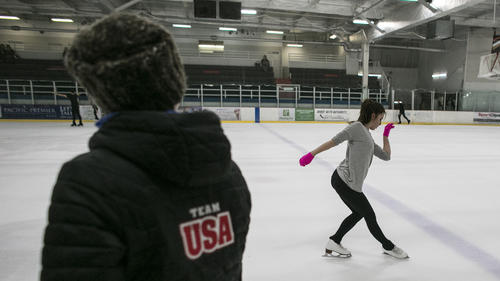 “I think that this is a very tough sport to be older than 17, in all honesty,” Wagner, a three-time U.S. champion, said after a recent practice at her training base at Lakewood Ice. “I think it’s a youth-obsessed culture within skating and it’s because we have kind of let it become that. And I don’t think that there is enough importance placed on maturity on the ice. “I think that for me, that world silver medal definitely turned the tables and got the ball rolling. I think it helps show the importance of a true performance and a woman on the ice and having maturity and skating skills and life experience.”  In addition to winning U.S. titles in 2012, 2013 and 2015, Wagner won a bronze medal in the first Olympic team skating event at Sochi, Russia, in 2014. But she finished seventh in the singles competition, three places behind rival Gracie Gold, a two-time U.S. champion who trains in El Segundo. Wagner’s prospects of being in the medal picture in 2018 appeared dim after that, but she believed she was capable of much more — and proved it this year. “I think the medal at worlds, if anything, was validation to everybody else,” she said. “I know what I’m capable of. I know how far I have to go and improve before I’m the athlete I want to be for the coming Olympics. But I think that everybody else needed a reminder that I was a medal contender and that I am a medal contender.” “In my view, it is not crucial whether others had doubts or not,” said Arutyunyan, who previously coached two-time Olympic medalist Michelle Kwan, 2006 silver medalist Sasha Cohen and other elite skaters. “What matters is that neither Ashley nor me had any doubts, which ultimately led us to success and ended this 10-year medal drought.” “The way I see it, I’m essentially 20 years into my own career and that is a choice that I made early on,” she said. “I am absolutely obsessed with this sport. I love the way that it makes me feel, I love the way an audience stands up after a performance because of something that you did. Those feelings are so special to me that they make up for the everyday experiences that I definitely miss out on. Never for a second have I ever regretted choosing skating over a normal life.” |
|
|
|
Post by Admin on Jul 5, 2017 20:09:02 GMT
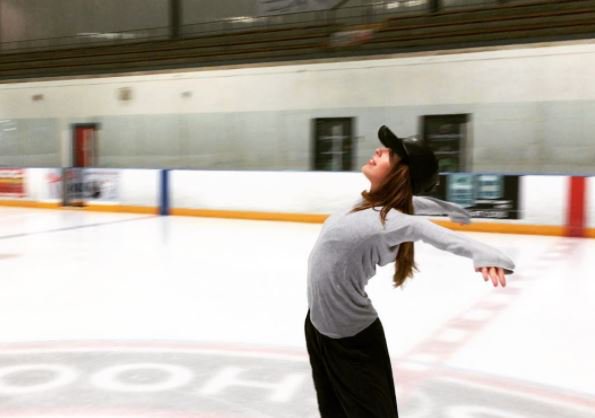 .@rockerskating is taking you behind the scenes of @ashwagner2010's new free skate. Watch here: |
|







